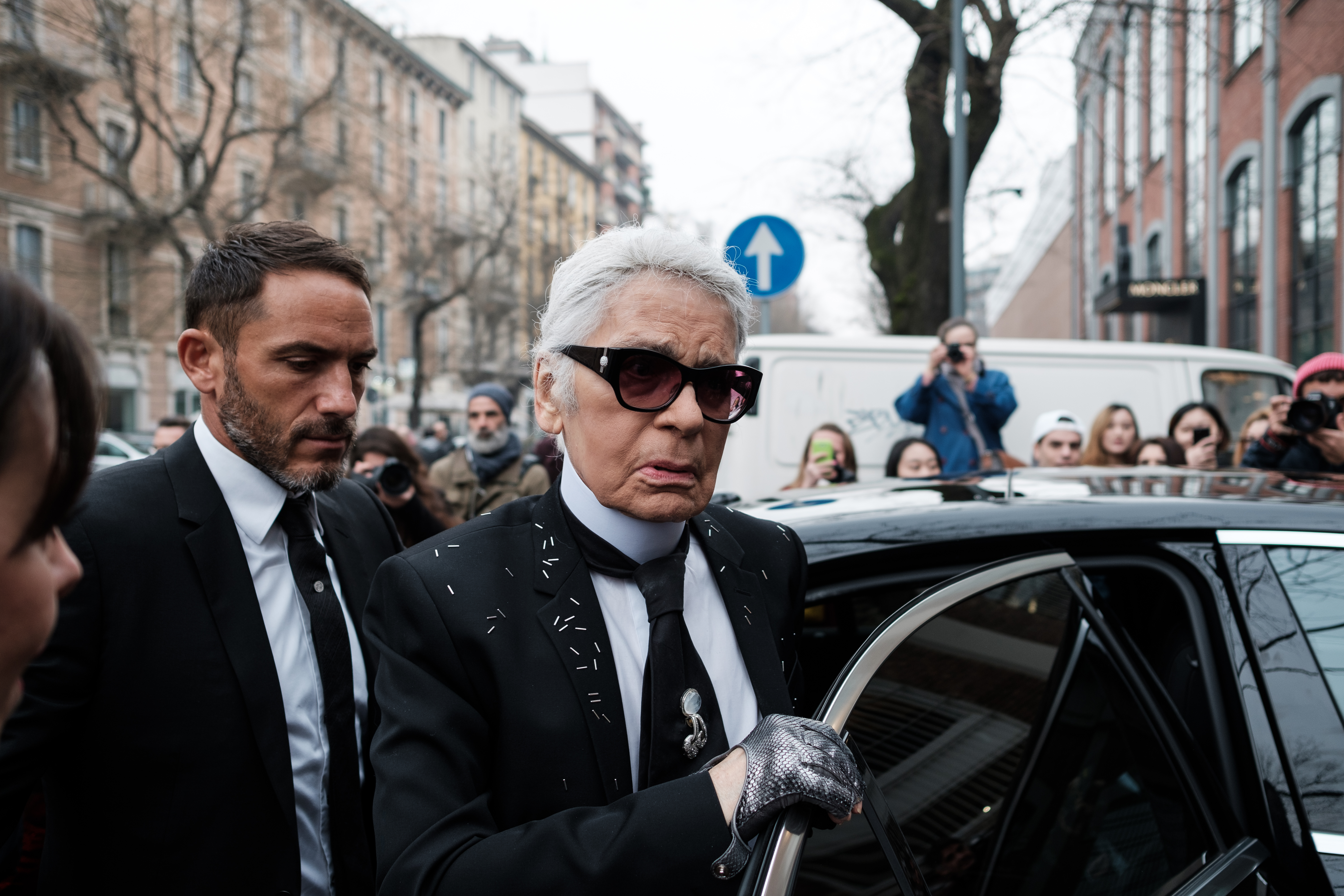Karl Lagerfeld, the longtime creative director of Chanel died on Feb. 19, at the age of 85.
“I felt very shocked at first. And then I feel really sad because he was such a legend and also I felt worried that if Chanel can carry on his legacy after he died,” said Emma Zhao, a fashion design sophomore at Parsons.
“I was sad to hear that he passed away, obviously. He’s an icon and he’s one of the few that we have left,” fashion design student Beate Karlsson said.
Karl Lagerfeld had been Chanel’s creative director since 1983 and Fendi’s creative director for fur and women’s ready-to-wear since 1965. Constantly seen in his dark glasses, silver ponytail, and fingerless gloves, Lagerfeld gained reputation as a recognizable man in fashion.
“Aside from [Karl Lagerfeld’s] immense talent, the legacy that Lagerfeld left has more to do with longevity and an unflagging work ethic,” said Christopher Blomquist, a professor for Fashion Publishing, via email. “He was creative director of Fendi for 53 years – unheard of in the industry and in this day and age – and he was constantly working until the very end.”
But with his reputation came controversy. Throughout his career, Karl Lagerfeld was accused of being islamophobic, misogynist, racist, and fatphobic. He was very open about his disdain on women larger than a size 0 or 2, claiming that “no one wants to see curvy women,” during a 2009 interview with German magazine, Focus. In that same interview, Lagerfeld argued that the women who are against thin models are just “fat mommies sitting with their bags of crisps in front of the television, saying that thin models are ugly.”
In the aftermath of his death, students and faculty shared their thoughts about Karl Lagerfeld.
“If we think about his professional side of his life, he’s pretty legendary, and he’s an iconic designer,” said Sue Lim, a fashion design senior at Parsons. When asked about her thoughts towards the controversial actions Lagerfeld has done, Lim said, as a fashion student, “it’s a normal thing I see every day.”
Ella Steakley, a fashion design freshman, claimed that she has heard stories from people who have worked directly with Lagerfeld, stories that were controversial and misogynistic. “But then other people have had great experiences with him,” said Steakley, “somehow it was kind of funny [that] he did say some things that you just can’t take seriously.”
Many fashion design students and faculty believe that he has contributed well in the fashion industry. “I think that K.L was a genius in the way he transformed the image of Chanel and adapted the collections to a younger audience,” said Brigitte Conti an assistant professor of fashion in Parsons School of Design, “Yes, he could have been very rude. That comes with the personage who liked to shock and destabilize.”
“The death of Karl Lagerfeld, I see it more as like the end of an era. Personally, Chanel is not the one brand I follow so much but I respect his work and I think he had a lot of dedication, and that’s something to look up to,” fashion design junior Constanza Nahmad said.
Jihan Basyah is the social media editor for the New School Free Press. She started off as a reporter covering fashion, arts, and culture. Currently, Jihan is studying Journalism + Design, with a minor in Fashion Communication, at The New School.







